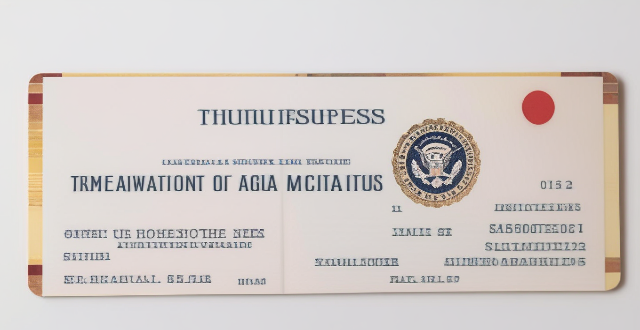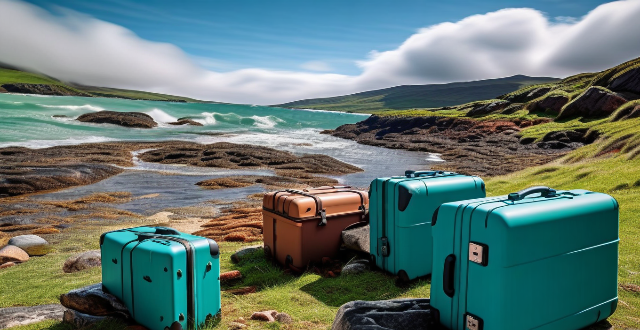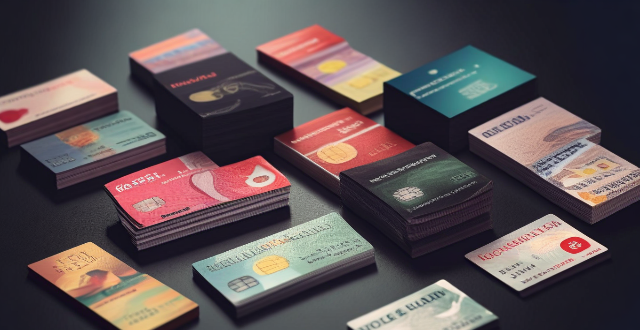
What makes a hotel considered a "luxury" experience ?
**What Makes a Hotel Considered a "Luxury" Experience?** A luxury hotel experience is defined by several key factors that set it apart from standard accommodations. These factors are often the result of meticulous attention to detail, exceptional service, and the incorporation of high-end amenities and features. Let's delve into the specifics of what makes a hotel considered luxurious: 1\. Exceptional Service: Personalized attention, professionalism, and courtesy are paramount. This includes butler services, anticipatory service, 24/7 concierge, polite and efficient staff, and multilingual capabilities. 2\. High-Quality Accommodations: The focus is on comfort and elegance. Room amenities include premium bedding, luxurious toiletries, and advanced in-room technology. Design and decor are tasteful, with spacious layouts. 3\. Exclusive Amenities: On-site facilities like fine dining restaurants, full-service spas, and state-of-the-art fitness centers set these hotels apart. Special features such as infinity pools and private beaches or pools add to the indulgence. 4\. Unique Experiences: Bespoke activities and extraordinary events make each stay memorable. Customized excursions and cultural immersion opportunities cater to individual interests. 5\. Location and Accessibility: Prime locations in iconic settings or with easy accessibility to major attractions define luxury hotels. Privacy and security measures ensure guest safety and peace of mind. 6\. Attention to Detail: Consistency in quality, environmental considerations, and thoughtful touches elevate the luxury experience. Immaculate cleanliness, sustainability practices, and personalized services make each stay exceptional. In summary, a luxury hotel experience is characterized by superior service, elegant accommodations, exclusive amenities, unique experiences, prime locations, and consistent attention to detail. It's about creating an environment where guests feel pampered and catered to at every turn, making their stay memorable and exceeding their expectations.

What amenities should I expect from a 5-star luxury hotel ?
When you stay at a 5-star luxury hotel, you can expect amenities like spacious and elegant rooms with high-quality linens, luxurious bathrooms, complimentary high-speed Wi-Fi, in-room entertainment systems, gourmet restaurants, bars and lounges, 24/7 room service, state-of-the-art fitness centers, full-service spas, heated indoor and outdoor swimming pools, technologically advanced meeting rooms and ballrooms, personalized concierge services, same-day laundry and dry cleaning, turndown service, in-room safes, luggage storage, valet parking, and bellhop services.

What are the benefits of staying at a small, boutique luxury hotel versus a larger chain resort ?
Staying at a small, boutique luxury hotel offers several advantages compared to a larger chain resort, including personalized service, unique ambiance, a quieter environment, local flavor, and exclusivity.

How can I save money on accommodation while traveling ?
Saving money on accommodation while traveling requires careful planning and research. Here are some tips: 1. **Choose Budget-Friendly Options** such as hostels, guesthouses, and budget hotels. Consider staying in a vacation rental or apartment for longer stays. Pros include lower cost, opportunities to meet other travelers, and often central locations. Cons may be lack of certain amenities, noisy or crowded conditions, and varying quality. 2. **Travel Off-Peak** to take advantage of lower rates during off-peak seasons or midweek. Pros include lower rates, fewer crowds, and easier access to deals and discounts. Cons may be limited hours at attractions, less than ideal weather, and limited availability of certain accommodation types. 3. **Negotiate and Look for Deals** by contacting hotel staff or searching online for discounts. Pros include potential savings on already discounted rates, exclusive promotions, and the ability to customize your stay. Cons may require flexibility in travel dates and destinations, restrictions or blackout dates on deals, and varying quality of rooms and services. 4. **Use Loyalty Programs** offered by hotel chains or booking sites to earn points for free nights or upgrades. Pros include earning rewards for future stays, exclusive member rates and benefits, and the possibility of room upgrades and other perks. Cons may require multiple stays to accumulate enough points, rewards may have expiration dates or restrictions, and some programs may charge fees or have complex rules.

What are the most child-friendly hotels or resorts for a family trip ?
When planning a family trip, it's important to choose accommodations that cater to the needs of both adults and children. Some of the most child-friendly hotels or resorts for a family trip include Club Med Resorts, Disney Resorts, Beaches Resorts, Great Wolf Lodge, Aulani, A Disney Resort & Spa, and Four Seasons Resorts. These properties offer amenities such as kid-friendly pools, water parks, supervised clubs, and cultural experiences. When choosing a hotel or resort for your family trip, consider factors such as location, amenities, activities, and overall atmosphere. Look for properties that offer supervised kids' clubs, family-friendly restaurants, and opportunities for both parents and children to relax and have fun together.

How can I protect my valuables while on vacation ?
When going on vacation, it is important to take measures to protect your valuables from theft or loss. Some tips include using a safe in your hotel room, carrying only what you need, being cautious with bags and purses, not flaunting valuables, using anti-theft bags and backpacks, keeping copies of important documents, and insuring your valuables. By following these precautions, you can help ensure that your belongings stay safe while enjoying your vacation.

What are some essential travel safety tips for international tourists ?
Traveling to a foreign country can be an exciting adventure, but it's important to prioritize safety during your journey. Here are some essential travel safety tips for international tourists: ## Research Your Destination Before embarking on your trip, research the destination thoroughly. Familiarize yourself with local customs, laws, and cultural norms. This will help you avoid any misunderstandings or unintentional offenses that could put you in harm's way. ### Learn Basic Phrases in the Local Language Knowing how to say simple phrases like "hello," "goodbye," "thank you," and "I don't understand" in the local language can go a long way in helping you communicate with locals and navigate your way around. ### Check the Weather Forecast Be prepared for any weather conditions by checking the forecast before you leave. Pack appropriate clothing and gear to ensure your comfort and safety throughout your trip. ## Stay Informed About Safety Concerns Stay up-to-date on any safety concerns or travel warnings related to your destination. The U.S. Department of State maintains a website with current information on safety issues and advisories for travelers. ### Register With Your Embassy or Consulate Register your travel plans with your embassy or consulate so they can contact you in case of an emergency or natural disaster. This is especially important if you plan to visit remote areas where communication might be limited. ## Be Cautious With Your Belongings When traveling abroad, it's crucial to take precautions to protect your belongings from theft or loss. Here are some tips to keep your valuables safe: ### Keep Your Valuables Close at Hand Carry only what you need when sightseeing or exploring new places. Keep your passport, cash, credit cards, and other valuables secure in a money belt or hidden pocket. ### Use Hotel Safes Wisely Hotel safes are convenient for storing valuable items while you're out and about. However, be aware that not all hotel safes are foolproof. Some may have vulnerabilities that could allow thieves to access your belongings. Always exercise caution when using hotel safes and consider bringing along a portable lock for added security. ### Be Mindful of Your Surroundings Stay alert and aware of your surroundings at all times. Avoid displaying expensive jewelry or electronics in public places, as these items can attract unwanted attention from pickpockets and thieves. If possible, try to blend in with the local crowd by dressing conservatively and avoiding flashy accessories. ## Follow Local Laws and Customs Respecting local laws and customs is essential for staying safe while traveling abroad. Here are some tips to help you navigate this aspect of international travel: ### Obey Local Laws Familiarize yourself with the legal system and laws of the country you're visiting. This includes understanding the penalties for breaking the law, which can vary widely depending on the country. Remember that what might be legal in your home country could be illegal elsewhere. ### Respect Local Customs Be mindful of local customs and traditions when interacting with locals. Dress appropriately for religious sites and respect their rules regarding photography and behavior. Additionally, be aware of social norms regarding physical contact (such as handshakes or hugs) and follow them accordingly. ## Seek Medical Attention When Needed If you become ill or injured during your trip, seek medical attention promptly. Here are some tips to help you stay healthy while traveling: ### Pack a First Aid Kit Bring a basic first aid kit with essential items such as bandages, antiseptic wipes, pain relievers, and any prescription medications you might need. This will help you handle minor injuries and illnesses without having to search for medical supplies in an unfamiliar place. ### Know Where to Go for Medical Help Research nearby hospitals and clinics before you leave home so you know where to go if you need medical assistance during your trip. It's also a good idea to purchase travel insurance that includes coverage for medical emergencies.

What are the top luxury resort experiences in the world ?
Luxury resort experiences are a great way to indulge in opulence and relaxation. From private islands to mountain retreats, these top luxury resorts offer unique experiences that cater to every need and desire. Some of the world's most luxurious resort experiences include Four Seasons Resort Bali at Sayan, The Brando in French Polynesia, Amangiri in USA, Cheval Blanc Randheli in Maldives, Como Shambhala Estate in Bali, Rosewood Mayakoba in Mexico, Le Sirenuse Champagne & Suites in France, and Capella Ubud in Bali.

What are the most romantic high-class restaurants for a special occasion in Rome ?
Rome, known as the city of love, boasts a variety of high-class restaurants perfect for special occasions. Among them are Aroma with its elegant ambiance and seasonal dishes; Il Conventino, offering historic charm and vegan options; La Pergola, renowned for its Michelin stars and innovative cuisine; Ristorante La Terrazza dell'Eden, providing chic ambiance and internationally influenced Italian fare; and Imàgo, known for its modern style and seafood specialties. Each restaurant offers a unique experience to make your special occasion unforgettable.

How can we save money on food during a family vacation ?
Saving money on food during a family vacation is crucial for budgeting. To achieve this, one should plan ahead by researching local restaurants and checking online reviews. Cooking your own meals in a vacation rental with a kitchen or bringing a portable stove can significantly reduce expenses. Packing healthy snacks like fruits and nuts can prevent expensive snack purchases at tourist attractions. Utilizing hotel amenities such as free breakfasts or dinners can also save money. Sharing meals by ordering larger portions and splitting them among family members is another effective strategy. Lastly, using discounts and coupons for local restaurants can further cut costs. By following these tips, one can enjoy delicious meals without overspending.

Are there any tax implications for using credit card rewards ?
The article discusses the tax implications of using credit card rewards, which vary depending on the type of reward and how it is used. Cash back rewards are generally considered taxable income and must be reported on tax returns. Travel rewards, such as airline miles or hotel points, are not usually considered taxable unless converted to cash. Merchandise rewards are typically not taxable until sold or exchanged for cash, but if the fair market value exceeds the purchase price, the difference may be considered taxable income. Charitable donations made with rewards may be deductible from taxable income, but it is important to consult with a tax professional to ensure compliance with tax laws.

How can I plan a budget-friendly trip to a popular destination ?
Traveling to popular destinations doesn't have to be expensive. Here are tips to plan a budget-friendly trip: 1. **Research and Choose an Affordable Time to Travel**: Go during off-peak or shoulder seasons for lower prices and smaller crowds. 2. **Book Flights Strategically**: Be flexible with dates, use flight aggregator websites, and set price alerts. 3. **Find Budget-Friendly Accommodations**: Consider hostels, Airbnb, vacation rentals, and look for hotel deals. 4. **Save on Transportation**: Use public transit, walk, or rent a bike instead of renting a car or taking taxis. 5. **Plan Your Meals Carefully**: Grocery shop and eat at local establishments for budget-friendly meals. 6. **Choose Free or Low-Cost Activities**: Enjoy free walking tours, museum days, and nature exploration. 7. **Pack Smart**: Bring only essentials and reusable items to avoid extra fees and hassle. 8. **Stay Connected Without Breaking the Bank**: Use local SIM cards and free Wi-Fi spots. 9. **Manage Your Money Wisely**: Use budgeting apps and carry a mix of cash and card. 10. **Embrace the Unexpected**: Leave room for spontaneous adventures and connect with locals for insider tips.

How can I find authentic local cuisine when traveling ?
The text provides a comprehensive guide on how to find authentic local cuisine when traveling. It suggests researching before the trip, asking locals, exploring markets, dining with locals, trying regional specialties, taking cooking classes, using technology, and being adventurous. The guide emphasizes the importance of stepping out of one's comfort zone to enjoy new flavors and dishes.

How do I navigate transportation options while backpacking in a new country ?
Navigating transportation options while backpacking in a new country can be overwhelming, but with some research and preparation, it becomes more manageable. Here are five key tips to help you navigate transportation while backpacking in a new country: 1. Research before you go: Look into public transportation systems, taxi services or ridesharing apps, and bicycle rentals to determine which options will be most convenient and cost-effective for your trip. 2. Use maps and navigation apps: Google Maps and Citymapper are two helpful apps that provide real-time transit information and suggest the best routes based on your location and destination. 3. Ask locals for help: Hotel and hostel staff can provide valuable insights into local transportation options and answer any questions you may have. 4. Be prepared for language barriers: Learn key phrases in the local language or use translator apps like Google Translate to communicate with locals and navigate transportation more easily. 5. Consider your budget: Compare fares between different transportation options and look for discounts or special offers to save money while still enjoying reliable transportation options.

Is it necessary to have a return ticket for a tourist visa application ?
The text discusses the importance of a return ticket for a tourist visa application. It states that a return ticket is necessary to ensure the traveler has plans to return to their home country after the completion of their trip. Other documents required for a tourist visa application include a valid passport, hotel reservation, travel itinerary, financial evidence, invitation letter, travel insurance, application form, and photo. The return ticket is considered important as it shows the embassy or consulate that the traveler plans to return to their home country after their trip, reduces the chances of overstaying their visa period, assures the authorities of departure arrangements, and maintains the integrity of visa policies. If a traveler cannot provide a return ticket at the time of application, there is a high probability of visa rejection. However, an onward journey ticket can be provided as an alternative. Alternatives to a return ticket include one-way tickets, open-ended tickets, refundable tickets, and onward journey tickets. To ensure the availability of a return ticket, travelers should book in advance, choose flexible dates, opt for refundable tickets, and check with airlines about their policies. Not providing a return ticket can lead to visa rejection, blacklisting, impact future applications, and financial losses. Travel agents can assist in getting a return ticket or suggesting alternatives but may charge additional fees.

How do I find the best restaurants while on a trip ?
Finding the best restaurants while traveling enhances the overall experience by allowing travelers to savor local cuisine. Here's a breakdown of strategies for discovering great eateries: 1. **Research Before You Go**: Utilize online reviews, blogs, and social media platforms for recommendations. 2. **Use Technology Wisely**: Leverage food apps and Google Maps for real-time information and user ratings. 3. **Ask the Locals**: Hotel staff and tour guides often have valuable insights into the best dining spots. 4. **Be Open to Serendipity**: Explore neighborhoods and engage with local shopkeepers for off-the-beaten-path finds. 5. **Consider These Points**: Pay attention to cuisine variety, dietary restrictions, and budget when choosing restaurants. 6. **Post-Meal Activities**: Leaving reviews and sharing experiences can help other travelers and support local businesses.

How can I protect my valuables while traveling ?
Protecting valuables while traveling involves using secure bags, being discreet, utilizing hotel safes, digitizing important documents, staying vigilant, distributing valuables, having insurance coverage, minimizing cash carrying, leveraging technology, and choosing safe accommodations.

How can I save money on a last-minute weekend city break ?
To save money on a last-minute weekend city break, consider the following strategies: 1. **Research and Compare Prices**: Use online travel aggregators to find deals, set up price alerts for your destination, and look for discount codes and coupons. 2. **Be Flexible with Your Dates and Destination**: Travel during off-peak times and choose affordable destinations or nearby locations to reduce costs. 3. **Book Cheap Accommodations**: Stay in budget lodging options like hostels or use home-sharing platforms. Take advantage of hotel loyalty programs and partner promotions. 4. **Minimize Transportation Costs**: Use public transit or walking tours instead of taxis or rental cars. Avoid expensive airport transportation by taking public transit or using carpooling services. 5. **Find Free or Cheap Activities**: Explore free attractions like museums and parks, attend local events, purchase city passes for discounted attraction entry, and look for group discounts on tours and activities.

What are some strategies for finding discounted travel packages and deals ?
Strategies for Finding Discounted Travel Packages and Deals Traveling can be expensive, but there are several strategies to find discounted travel packages and deals. Being flexible with travel dates, signing up for email alerts and newsletters, using travel rewards programs, looking for bundled packages, checking for last-minute deals, considering alternative accommodations, and researching local discounts and freebies are all effective ways to save money on travel expenses. By employing these strategies, travelers can enjoy memorable adventures without overspending.

Are there any restrictions on how I can use my credit card rewards ?
Using credit card rewards can save money and add value to purchases, but it's crucial to understand potential restrictions. Restrictions may include limited redemption options, expiration dates, minimum thresholds, blackout dates/capacity controls for travel expenses, transfer partnership requirements, and tax implications. By understanding these limitations, you can maximize the value of your rewards while avoiding surprises.

How can I plan a budget-friendly family trip ?
The article provides a comprehensive guide on how to plan a budget-friendly family trip, emphasizing the importance of setting a budget, choosing an affordable destination, booking flights and accommodations in advance, planning the itinerary carefully, packing smart, cooking meals at your accommodation, using public transportation or walking, and looking for discounts and coupons. The tips are designed to help readers save money while still enjoying a memorable and enjoyable family vacation.

Can you suggest any upscale restaurants with stunning views in Sydney, Australia ?
Sydney, the cosmopolitan capital of New South Wales, boasts numerous upscale restaurants that offer breathtaking views. Some suggestions include Quay, situated overlooking the iconic Sydney Harbour Bridge and Opera House, serving modern Australian cuisine in a formal and luxurious atmosphere; Aria, located in the stylish Barangaroo neighborhood, offering innovative Australian cuisine with sweeping views of the harbor bridge and city skyline; The Langham, situated on the top floor of the historic Langham Hotel, providing panoramic views of the city and Botanical Gardens while serving French-inspired fine dining; Tetsuya's, set in a converted warehouse in Woolloomooloo, offering Japanese-Australian fusion cuisine overlooking the beautiful Finger Wharf; and Sepia, located on Level 3 of the Sydney Tower, providing spectacular views of the city and harbour while serving modern Australian cuisine with a focus on wood-fired cooking. These establishments not only offer exquisite cuisine but also provide stunning views of Sydney's iconic landmarks and picturesque skyline, making them perfect for celebrating special occasions or enjoying a memorable dining experience.

What are some ways to save money on food while traveling ?
Here are ten ways to save money on food while traveling: 1. Eat local street food for affordable and delicious options. 2. Cook your own meals if you have access to a kitchen or cooking facilities. 3. Pack snacks from home to avoid expensive airport or convenience store prices. 4. Avoid tourist traps and look for places where locals eat for authentic and affordable cuisine. 5. Use discount apps and coupons to save money on food and drink at local establishments. 6. Share meals with friends or family members to enjoy a variety of dishes without spending too much money. 7. Drink tap water instead of buying bottled water to save money. 8. Take advantage of hotel breakfasts to save money on breakfast costs. 9. Visit local markets for fresh produce, meats, and other ingredients that are cheaper than grocery stores or restaurants. 10. Choose budget-friendly restaurants that cater to locals rather than tourists for good food at reasonable prices.

How do I find authentic ethnic restaurants when traveling abroad ?
Finding authentic ethnic restaurants while traveling abroad is a great way to immerse oneself in different cultures. Here's how you can find genuine ethnic restaurants during your travels: 1. Research before you go by reading reviews online, joining travel forums, and consulting local food blogs. 2. Ask locals for recommendations, including hotel staff, taxi drivers, shopkeepers, and people in public spaces. 3. Observe the crowd and look for places filled with locals, especially during lunchtime. 4. Dine like a local by eating at off-peak hours, trying regional specialties, and ordering family-style. 5. Use technology such as apps and maps to search for highly-rated restaurants in the area and filter by distance or rating. 6. Be open to new experiences and step out of your comfort zone to try authentic cuisine that may be different from what you're used to. By following these steps, you'll increase your chances of finding truly authentic ethnic restaurants while traveling abroad. Enjoy your gastronomic adventures!

How can I ensure I have enough power for all my devices while on the road ?
When traveling, it's crucial to ensure your devices are adequately powered. Here's how: 1. **Plan Ahead**: Make a list of devices, check their battery life, and pack extra chargers and cords. 2. **Use Portable Power Banks**: Choose high-capacity, portable power banks and ensure they're fully charged before departure. 3. **Utilize Vehicle Charging Options**: Invest in multi-USB car chargers and consider portable car battery jump starters with USB ports. 4. **Stay Connected to Power Sources**: Take advantage of hotel room outlets, public charging stations, and ask locals or staff for charging options. 5. **Conserve Battery Life**: Turn off unnecessary features, lower screen brightness, close unused apps, and use battery-saving modes.

How do I maximize my short weekend trip to a city ?
Traveling to a city for a short weekend trip requires careful planning and prioritization. Research the city beforehand, book accommodations in advance, and plan transportation options. Create a realistic schedule for each day, taking advantage of local resources such as tourist information centers and guided tours. Pack comfortable shoes, light luggage, and necessary electronics. Finally, embrace spontaneous adventures, meet locals, and enjoy the moment to create lasting memories.

How do I find unique local experience activities when traveling ?
When traveling, immersing yourself in unique local experiences is a fantastic way to connect with a new culture. Here's how you can find these special activities: 1. **Research Online**: Use travel websites and apps like TripAdvisor, Airbnb Experiences, and GetYourGuide. Join local Facebook groups for insider tips. 2. **Ask Locals**: Hotel staff, hosts, and people in cafes often have great recommendations. 3. **Visit Local Tourism Offices**: Information centers and kiosks provide maps, brochures, and advice on lesser-known activities. 4. **Explore on Foot**: Take walking tours or wander off the beaten path to discover hidden gems. 5. **Look for Local Events and Festivals**: Check event calendars and attend cultural celebrations for a deep dive into local heritage. 6. **Use Guidebooks Selectively**: Choose guidebooks focusing on off-the-beaten-path experiences and verify information online. 7. **Consider Alternative Accommodations**: Staying with locals or at farm stays can offer unique experiences. 8. **Be Open to Serendipity**: Embrace spontaneity and negotiate directly with locals for unexpected opportunities. By employing these strategies, you can find and enjoy unique local experiences that will make your travels memorable.

What safety precautions should I take while on an African safari ?
When embarking on an African safari, prioritize safety by getting necessary vaccinations, following guide's instructions during wildlife encounters, ensuring reliable transportation, choosing reputable accommodations, and being prepared for weather conditions.